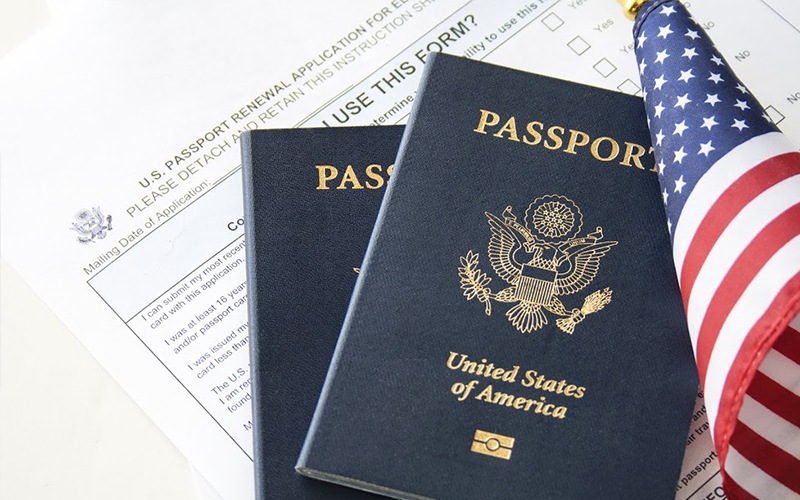I am a Green Card Holder. Can I petition my Parents under the Family-Based Immigration Visa Category?
No, only U.S. Citizens who are at least 21 years old at the time of the filing of the Petition can a file a petition for their parents.
I am already in the U.S. and arrived as a Visitor. I would like to Change my Status. What are my options?
If you come to the U.S. equipped with a Tourist Visa, the immigration authorities expect you to come to the U.S. with the intention to simply visit. There are legal requirements and limited options to those who come to the U.S. on a Tourist Visa. However, should you have the qualifications and enough funds to support your extended stay in pursuit of your desired new non-immigrant visa, the USCIS may consider the approval of your application. You need to discuss this matter with an experienced and honest immigration attorney.
What is an H1-B Visa?
It is a non-immigrant visa or temporary worker’s permit for highly skilled foreign workers who have at least a Bachelor’s Degree tasked to perform a particular job in the U.S. that requires certain set of skill set for a complex job description. In some instances, those who do not have the Bachelor’s Degree may also qualify provided they have extensive work experience related to the offered position and can show to the USCIS that their work-related experience is equivalent to a Bachelor’s Degree.
The H1-B holder can work in the U.S. for three (3) extendible for another three (3) years only. There are instances in under the American Competitiveness of the Twenty First Century Act of 2000 (AC 21) wherein the 6 year statutory limitations can be extended. Filing is accepted only starting April 1st of each year. There are limited slots for this type of visa and it is therefore imperative you get in touch with a quick, experienced and honest immigration attorney who can act on your case immediately.
What is an L-1 Visa?
The “L” visa may be granted to an applicant from any country who is transferred by a company overseas to work for a related business in the U.S. The said applicant must have worked (as an executive, manager or in a “specialized knowledge” capacity) in that company for at least one year in the last three (3) years. L1 Visa applicant may also come to the U.S. to establish a new office of the company overseas and must show after one year that the company is “doing business”.
I do not want to live permanently in the U.S. but I want to set up a business. What should I do?
The “E” visa may be granted to citizens of certain countries that have business treaties with the U.S. They can invest in the U.S by setting up a business that must owned by said citizens provided they comply with certain requirements. The Visa is good for two (2) years and is extendible indefinitely provided the business remains viable and not considered a marginal type of business. There are certain complex and difficult requirements for this type of visa and it is best to engage the services of an experienced and honest immigration attorney.
I want to study in the U.S. What shall I do?
If you are residing abroad, you need to apply at the U.S. Embassy or Consulate Office of your home country. You need to choose a SEVIS-approved school that offers your desired course in the U.S. and then comply with the school’s requirements for you to secure the I-20, “Certificate of Eligibility for Non-immigrant Student Status”. Once you have it, then you can browse through the website of your home country’s U.S. Embassy or Consulate Office which enumerates the other documentary requirements to complete your Student Visa (F-1) Applications. We shall be happy to assist you on this matter.
If you are already in the U.S., then you need to speak with an experienced and honest immigration attorney who will evaluate your case. There are important information that need to be discussed with you for this type of immigration procedure. There are issues of timing when to file it, how to file and other matters that need to be threshed out to ensure a positive result.
My U.S. Citizen Parent filed an Immigrant Petition and was approved long ago. He is already dead. I am still abroad. Can I still pursue the Petition?
Death usually automatically revokes the approved Petition. However, under 8 C.F.R. 205.1(i)(C)(2), the beneficiary can still pursue the Petition through Humanitarian Revalidation/Reinstatement provided a Substitute Sponsor who is related to the beneficiary prepares an Affidavit of Support. This immigration procedure does not entail a filing fee with the USCIS and takes a bit of time (usually within two years) to obtain a decision. This procedure also requires a lot of documentation, legal eligibility requirements and proper explanation as to why the beneficiary deserves to immigrate to the U.S. despite the death of the Petitioner.
I have been residing in the U.S. My U.S. Citizen Parent filed a Petition in my favor and while it was pending, the Petitioner died. Can I still pursue the Petition?
Section 204 (l) of the Immigration and Nationality Act (INA) allows beneficiaries to continue to be eligible for adjustment of status even when their qualifying relative has died. Under the new law, the petition does not have to be approved. It is sufficient that a petition has been filed by the petitioner or on behalf of the petitioner before his or her death. The beneficiaries must, however, meet other requirements for adjustment of status to be able to eligible under this provision.















